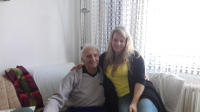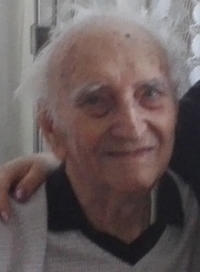The future Salesian, businessman and the chairman of the unified agricultural cooperative
Josef Bajer was born on January 23, 1923 in Straník in Bajarov’s mill into a strongly Catholic family. He first attended the local primary school and then was admitted to the grammar school in Nový Jičín, which was closed after the German occupation. He then tried a pedagogical school in Frenštát, but eventually found a job in a shop, which he later also ran. In 1942, Josef (then Bajar at the time) was ordered by the German administration to go to work in Salzburg. In the end, he did not have to go to the then German Empire, but before that he was issued a German ID in the name of Bajer, which he eventually retained. Their family materially supported the guerrillas. At the end of the Second World War, he opened his own shop in Stachovice, got married, but with the arrival of the communist government, his shop was confiscated. Josef Bajer then became a planner in agricultural production in Vítkov and subsequently chairman of the unified agricultural cooperative (collective farm) in Fulnek. He participated and lectured at the congresses of agricultural cooperatives in Prague. After 1971, he suffered a stroke and, after his recovery, worked at the sawmill in Fulnek.

